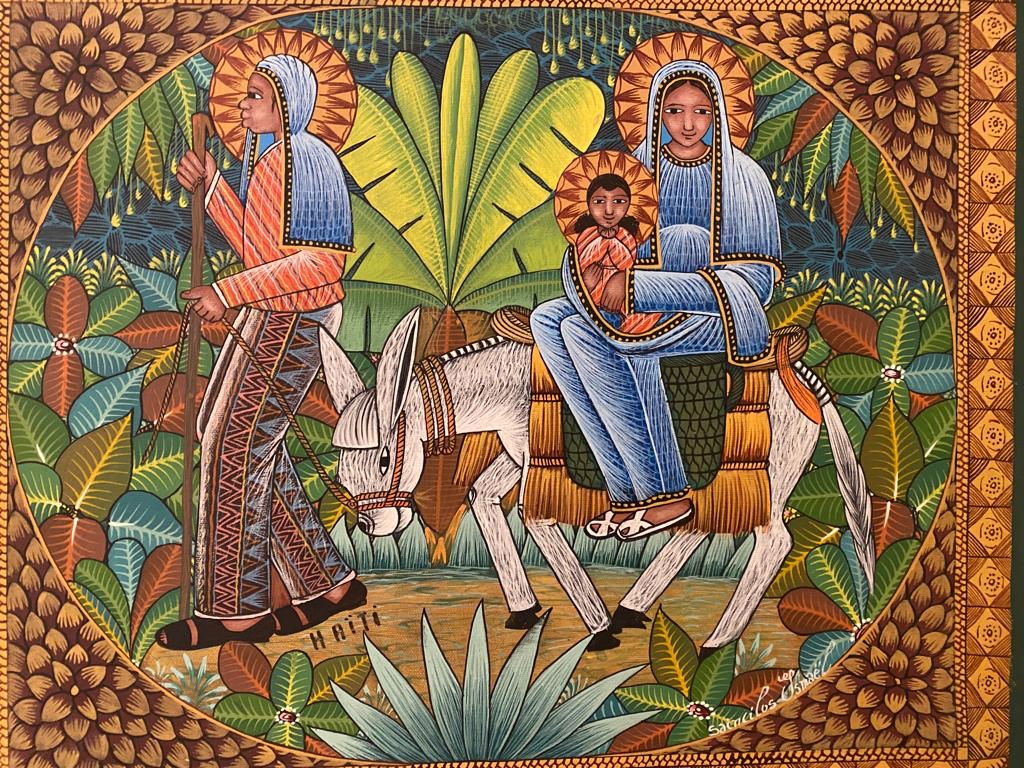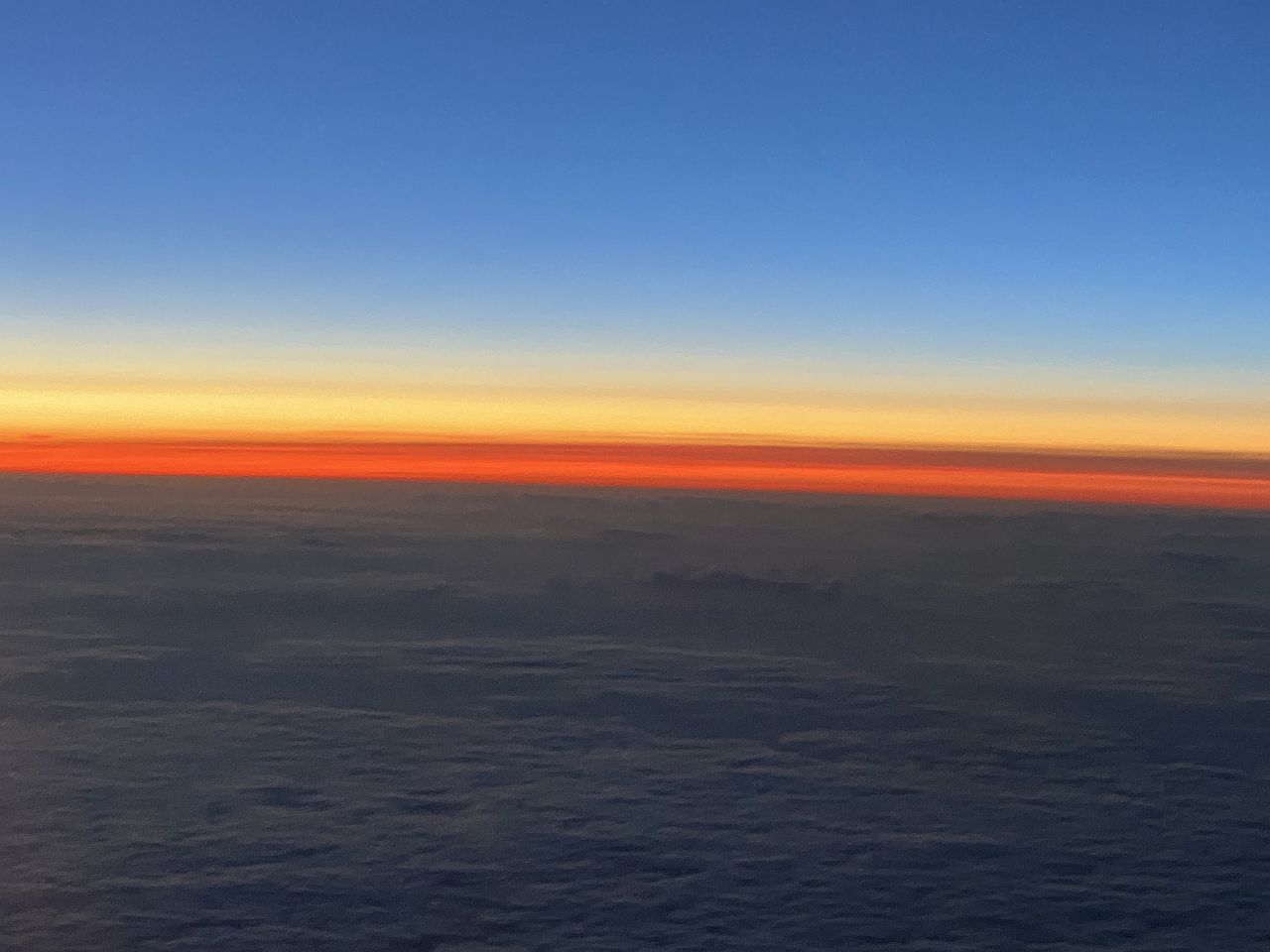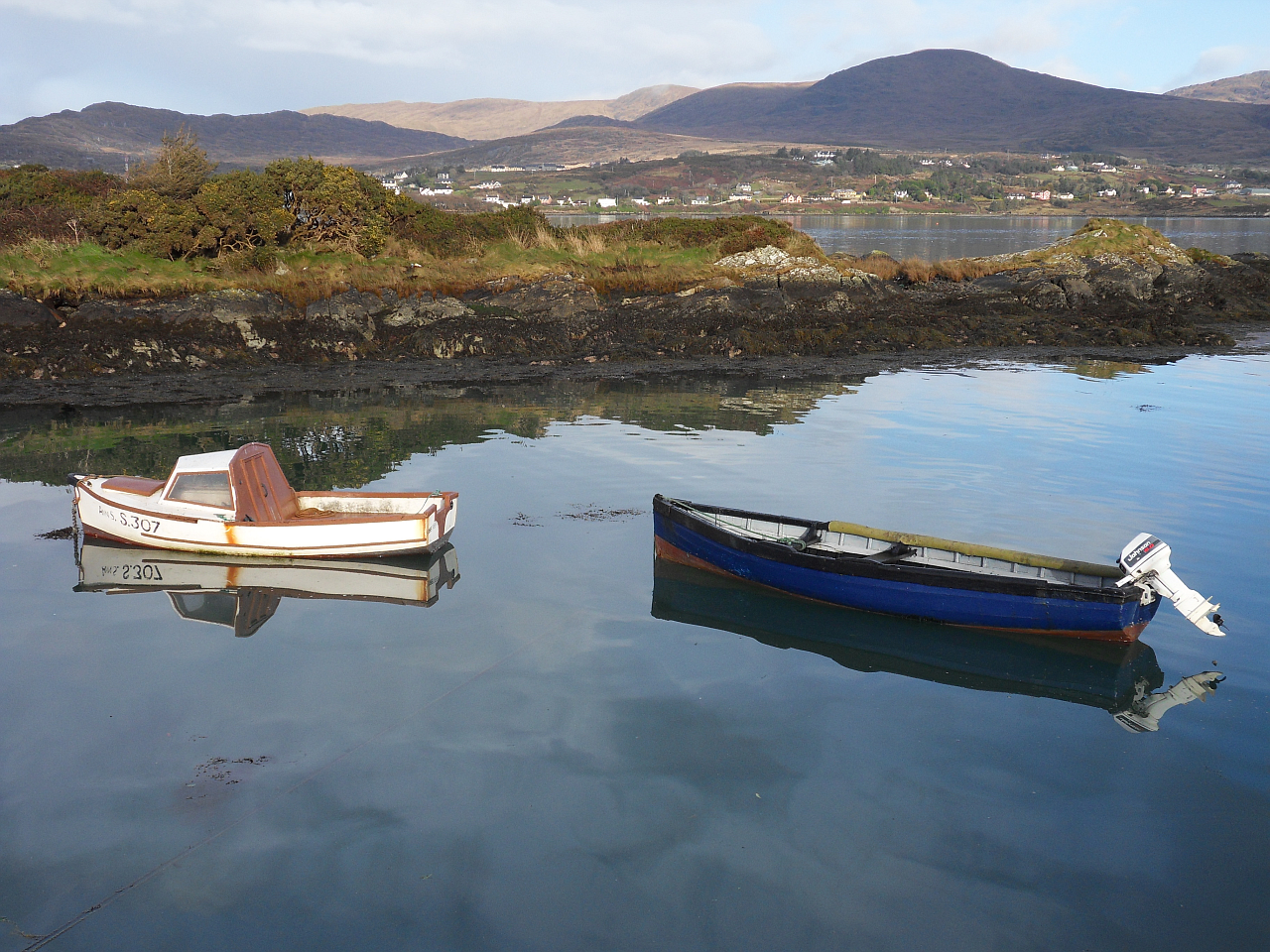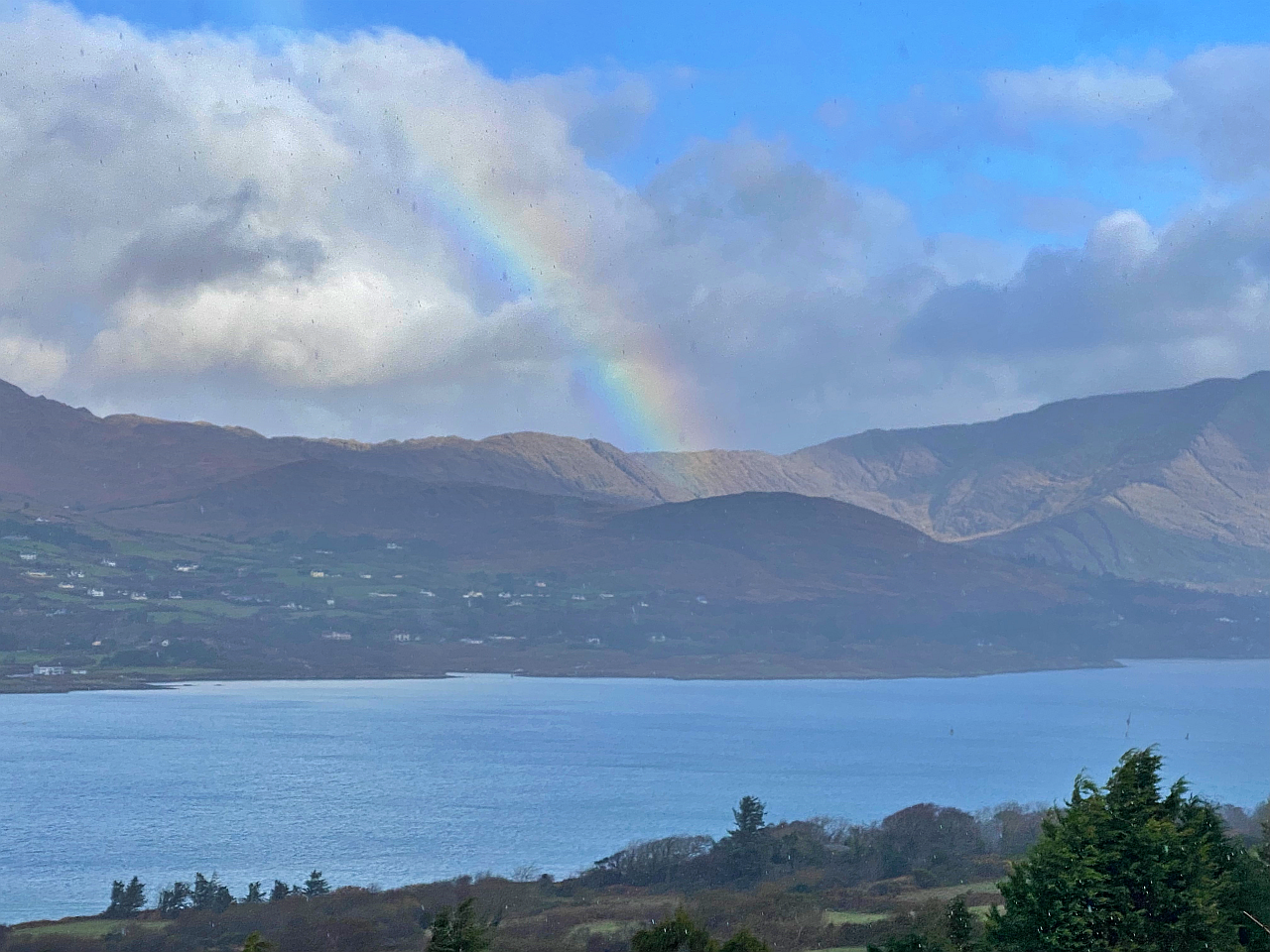Advent Reflections
These weekly reflections for Advent by Laurence Freeman, a Benedictine monk and Director of The World Community for Christian Meditation, are to help those following them prepare for the celebration of the birth of our Lord at Christmas. These readings are an encouragement to start to make meditation a daily practice or, if it already is, then to deepen it by preparing for the times of meditation more carefully. The morning and evening meditations then become the true spiritual centre of your day. Here is the tradition, a very simple way of meditation, that we teach:
Sit down, Sit still with your back straight. Close your eyes lightly. Breathe normally. Silently, interiorly begin to repeat a single word, or manta. We recommend the ancient prayer phrase ‘maranatha’. It is Aramaic (the language of Jesus) for ‘Come Lord’, but do not think of its meaning. The purpose of the mantra is to lay aside all thoughts, good, bad, indifferent together with images, plans, memories and fantasies. Say the word as four equal syllables: ma ra na tha. Listen to it as you repeat it and keep returning to it when you become distracted. Meditate for about twenty minutes each morning and evening. Meditating with others, as in a weekly group, is very helpful to developing this practice as part of your daily life. Visit the community’s website for further help and inspiration: UK wccm.uk and International wccm.org

[Image: Laurence Freeman]
The early disciples of Christ did not yet have baptismal certificates. But they asked a profound theological question with childlike honesty. ‘What good does it do me if he is born in Bethlehem once if he is not born again in my heart in faith?’ We celebrate the historical birth because it replays the eternal birth of the word in the abyss of the father’s being. The closest we can come to imagine this is to think of the cosmic distances and horizons of space-time.
A question we can focus on without going dizzy is ‘how do we prepare ourselves for the birth in our soul’. Eckhart gives a clue – such a soul needs to be pure, live well and be unified. The word is then spoken in the deepest silence. In a space where no word or thought enters.
What propels us for this work of preparation? Not desire or ambition but a love of poverty and emptiness by which we are convinced that this, and no other, is the way. Allowing that strange love to move us, we become aware of ‘something in me that shines in my consciousness. I can clearly perceive that it is something but what it is I cannot say.’
The whole story of the Nativity confirms this wisdom of failure and rejection of the pursuit of success. The story beautifully symbolises the whole of the life and teaching of the child’s next thirty-three years.
This applies especially to the preparatory work we do need to do to prepare for the interior birth. How much of our work for silence feels successful? During the past weeks I have often tried to meditate in difficult conditions. I’d like to say I succeeded even when the conditions became too much. Some hope! If it was caused by pain, I have sensed how our individual pain reflects the universal suffering of humanity borne by the risen Jesus. Much as we might wish, it doesn’t take the pain away). I am left with a sense of poverty and emptiness.
What happens in my attempt to meditate? A new meditator online delighted me last week with his own conclusion: ‘when I fail to control my thoughts, I know I was still doing a good work. I was meditating – or maybe the Spirit was doing it for me.’ Something was happening.
Our gift to the world is to believe wholeheartedly in the unstoppable birth process. From that wholeness we say happy Christmas and reverence life.

[Image: Laurence Freeman]
There was a man sent from God whose name was John. He came as a witness to testify to the light, so that all might believe through him. He himself was not the light, but he came to testify to the light.
This is the testimony given by John when the Jews sent priests and Levites from Jerusalem to ask him, “Who are you?” He confessed and did not deny it, but he confessed, “I am not the Messiah.” And they asked him, “What then? Are you Elijah?” He said, “I am not.” “Are you the prophet?” He answered, “No.” Then they said to him, “Who are you? Let us have an answer for those who sent us. What do you say about yourself?” He said,
“I am the voice of one crying out in the wilderness,
‘Make straight the way of the Lord,’ ”as the prophet Isaiah said.
Now they had been sent from the Pharisees. They asked him, “Why, then, are you baptizing if you are neither the Messiah, nor Elijah, nor the prophet?” John answered them, “I baptize with water. Among you stands one whom you do not know, the one who is coming after me; I am not worthy to untie the strap of his sandal.” This took place in Bethany across the Jordan where John was baptizing.
John 1:6-8,19-28
John the Baptist knew he was not the light that the world was hoping for. But he knew he was commissioned to witness to that light and point to the true light when it appeared.
We live today in an era of false, short-lived prophets especially in our anarchic and amoral political world. Their campaign messages can descend into the surreal, absurd to any reasonable person, as they drag fringe conspiracy theories into public debate to flatter and deceive extremists. The powers of illusion when they are not exposed by authentic prophets drain the spirit. Where is the light of truth, the truth that sets us free, the light of the world?
In many faiths and cultures at this time of the year festivals of light are celebrated. Hannukah for the Jews, with the lighting of candles, meals, song, games and gifts for children. Diwali, the Hindu Festival celebrating the victory of light over darkness, truth over ignorance , good over evil. Variations of this are joyfully observed by Jains and Sikhs. In Thailand and South-East Asia the festival of Loi Krathong sees baskets of burning lights set sail on rivers to thank the gods of water.
Christmas is celebrated on December 25th because it replaced the feast of the Roman god Sol Invictus, which like all these festivals is linked to the winter solstice, happening in a few days, the shortest day and the longest night. The great cycle of the sun reaches its nadir but as it hits the lowest point it is reborn. A new cycle begins and then each day is longer than the one before, at first imperceptibly but soon undeniably.
New Grange is a monumental 5,000 year-old burial mound in Count Meath, Ireland. At sunrise on December 21st, the first ray of direct sunlight from the new-born sun precisely, silently, enters the narrow aperture over the entrance, penetrates into the mound of solid rock and fills the inner chamber with golden light for seventeen minutes. Light overcomes darkness. It is irresistible and yet gentle. As it grows stronger with occasional surges, its intensity increases and the power of its beauty. It communicates purely by itself – the meaning of truth.
I hope you can take time to watch this short silent video of the phenomenon. It captures a sacred moment, the revelation of God in nature. And it may give you a sense of how the light of Christ, the light of truth, actually enters and changes our world.

[Image: Laurence Freeman]
The ferry that crosses the water several times a day between Bere Island and the mainland only takes about a quarter of an hour. This morning I unexpectedly called the ‘master’ of the boat for that trip ‘Ferryman’. I was thinking of Charon the mythological figure who carried the dead in a boat across the river of death to the other world. Before burial, relatives of the dead person would place an obon, a low value coin on or in the mouth of the dead person as payment or a bribe to Charon. (The Bere Island ferry has a lower rate for locals and you get a discounted rate for twelve trips.)
In Christian times this practice of preparing for the journey from this world to the next became viaticum, the consecrated host placed on the tongue of the dying person. It means literally ‘provision for the journey’. As it is placed in the mouth these words may be said ‘May the Lord Jesus Christ protect you and lead you to eternal life’. Hades was the name of the god of the underworld and an object of great fear and superstition because his main task was to prevent any of his guests from ever leaving. In the new myth that replaced him we often hear the question ‘why are you afraid’. We are invited to believe in the real possibility of living free from fear.
I thought, as I crossed the water and returned to the island today, that these frequent trips of the Bere Island ferry are like trial runs that we all make in the many personal stories of our lives. They are times when we must die to our expectations, plans and hopes or when relationships unravel and we learn painful lessons about ourselves and are faced with the pangs of the birth of a new self. Every trip, every story, is both separation from the past and the familiar, a little death, and yet it is also a return to where started and seeing it with new eyes and fresh, reassuring gratitude.
As you chug across the water, the town, or the island on the return trip, seems to be coming towards you, which is true but only because you are going towards it. This is the illusion built into all that we inhabit in our temporal-spatial world and too linear way of perception. The other side can be frightening. But what if Hades was replaced by a John the Baptist who is the main figure in today’s gospel. He didn’t ask anyone for a fee but the world came out to see him in the wilderness simply to ask ‘what shall we do? Show us how to live’.
Prophets are not sentimental by nature and are economical with their words. But they communicate a sharp compassion for all who suffer on the frequent trips of our lives between the familiar and the other side. It is hard to make these trips, although the views can be magnificent, until we fully realise that what we are going towards is coming towards us.
Half-way between the two sides there is that point of stillness where here is where we are and where past and future are in the present.

[Image: Laurence Freeman]
Jesus said to his disciples: ‘Be on your guard, stay awake, because you never know when the time will come. It is like a man travelling abroad: he has gone from home, and left his servants in charge, each with his own task; and he has told the doorkeeper to stay awake. So stay awake, because you do not know when the master of the house is coming, evening, midnight, cockcrow, dawn; if he comes unexpectedly, he must not find you asleep. And what I say to you I say to all: Stay awake!’
Mark 13:33-37
This teaching expresses the spirit of Advent. Like Advent, it is not about delay or abstraction. Yet, it’s hard to see what the simple instruction to ‘stay awake’ really means. If we don’t see what it means how can we obey it? The master has left his servants alone. This is like the feeling that God is personally absent but still impersonally present in the laws of the universe or Murphy’s Law (if something can go wrong it will).
I was travelling to spend a weekend alone on retreat before a medical operation. I discovered on arrival at the airport that my bag had been stolen from the train. I had to report it in French to an official who could not take his eyes off his mobile phone and treated me with barely-concealed contempt. Then the flight was long delayed. I decided to use the opportunity to get a gadget which I had long needed or at least wanted. I set it up successfully and then it promptly died on me. Real, sudden, unfixable inoperancy. The next day I had to go back and waste hours at the nightmarish shopping mall to get it replaced. My retreat weekend was ruined and why did I feel to blame? Getting to hospital was almost a relief because something seemed so intent on obstructing me. The day after the operation I lost my glasses causing great inconvenience for more than the week it took to replace them. I was obliged to be patient (who could I be angry at?) but there was a sad sense of a pattern of hostility.
I wasn’t complaining. But was I imagining a pattern? No, they were real events, even if they reminded me of Murphy’s Law that ‘if something can go wrong it will and at the worst possible time.’ It felt more humorous than hostile. Was I expected to understand this oddly linked set of events? No, I simply had to embrace them indifferently, impersonally, without judging or explaining them without resentment which is a mask of anger.
Maybe this is what ‘staying awake’ means. After all, who are we? Servants, not self-employed, less like a snobbish butler, more like a house-slave. Not understanding the master’s will and yet having to accept and obey it produces at times a cold impersonality. The master is absent and we don’t know when he will return and end the run of bad luck. But come home he will. This still feels a shallow, literal interpretation and not what Advent as a spiritual practice is about. It is not Father Christmas but the invisible Master who returns on Christmas Day. If birth is really a return, everything has a purpose.
Uncomplaining, generous acceptance may seem beyond our capacity. Nevertheless, the lesson is always: more humility. Simone Weill said ‘humility is attentive patience’. In misfortune we learn to be ready for the unexpected. Our wakefulness, then, becomes joy.